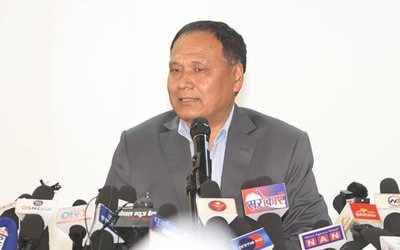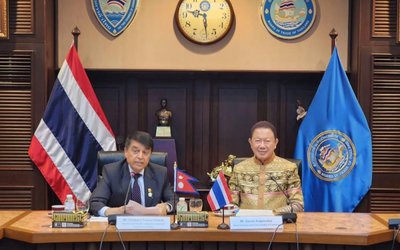More on Economy




Nepal has been struggling to lure foreign investment, but the team led by Suraj Vaidya, president of the Federation of Nepalese Chamber of Commerce and Industries, has proved that they can change the game. In a gathering of over 100 international business groups from Asia and the Pacific region, Vaidya explored the opportunity for the foreigner investors to invest in Nepal. At a time when Nepal Investment Year 2012 has nearly elapsed without succeeding to bring any new investment, the Conference of Confederation of Asia-Pacific Chambers of Commerce and Industry (CACCI) gave a sigh of relief.
Over 100 foreign investors from 21 various countries of Asia Pacific region got a good opportunity to know the investment potential, opportunities and regulatory process of Nepal. Although foreign investment is not a matter of overnight business, it will take a pretty long time to materialize the commitments made by the international investors in the CACCI conference. One of the important parts of the conference is that it was able to disseminate the message to the foreign investors that Nepal’s industrial policy is investment friendly and Nepal’s industrial environment is conducive, despite prolonged political instability.
When Suraj Vaidya contested the elections for the FNCCI president, many expected that his personality and capability would bring much needed change. By organizing CACCI conference, Vaidya proved it.
With investors announcing investment commitments in a number of sectors such as hydroelectricity, agriculture and food processing, the three-day regional conference of Confederation of Asia-Pacific Chambers of Commerce and Industry (CACCI) concluded.
“I am investing US$ 5 million in Nepal´s hydropower sector,” announced Ambassador Benedict V Yujuico, a Filipino investor and president of CACCI. His investment, according to Yujuico, would come in Upper Mai Hydroelectric Project (9.98 MW), which is being developed by High Himalaya Hydro Company.
Pradeep Kumar Shrestha, former president of the Federation of Nepalese Chamber of Commerce and Industries (FNCCI) said the two sides are yet to sign a formal deal.
Similarly, investors from Taiwan and South Korea also announced that they would make investment in agricultural and tourism sectors, respectively. Top businessmen of the region, who gathered in Kathmandu for the 26th conference of CACCI, admitted there were structural problems in Nepal´s hydropower sector.
“But still we want to make the investment and become part of the country´s development,” said Yujuico, who has invested in countries like the USA, Singapore and the Philippines. Yujuico even appealed to all the investors attending the conference to invest in Nepal.
FNCCI officials said numerous Nepali entrepreneurs have received strong commitments from investors from South Korea and Taiwan for new investments. “We had appealed to the business leaders from Taiwan to invest in food processing and packaging industry,” said FNCCI President Suraj Vaidya. “Their responses have been positive.”
FNCCI also signed a memorandum of understanding (MoU) with the Chinese International Economic Cooperation, Taiwan and Iran Chamber of Commerce, Industries and Agriculture (ICCIA) aiming to lure more investment from the respective countries. “These MoUs will lead us to more cooperation and communication and ultimately new investment,” Vaidya stated.
The discussion at the conference had revolved around specific sectors such as hydro, construction, alternative energy, small and medium enterprises, tourism, health and education, among others. Around 300 business leaders from 21 countries across the region participated in the conference.
CACCI, held from October 4-6, was able to inject a new hope in foreign investment sector. After holding the conference, Vaidya proved that he is the right man in the right time.
“Investors from the Asia-Pacific region got the first hand information on the real situation in Nepal. We received a very strong interest from business leaders to invest in Nepal. Some of them even declared their immediate investment plans. However, the investors also expressed concerns over some of the legal framework, particularly on protection of foreign direct investment (FDI). In a nutshell, the conference was successful and responses from investors were very encouraging. But we must understand that getting investment from abroad is a long process,” said Vaidya.
“As a business community, we have convinced the international investors about good prospects of doing business here. However, our efforts alone will not suffice. The government too should take steps to win their confidence. For this, it needs to allay concerns of the investors and make attractive offers through amendment and enactment of laws. I sincerely hope our government will take steps in this direction, so that we could materialize our dreams of luring their investment soon. Investors from Korea, Taiwan and The Philippines have expressed strong interest to invest in Nepal.”



